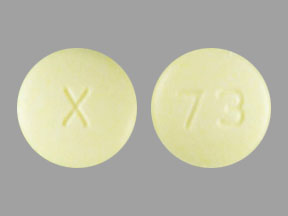
Alprazolam ER Coupons & Savings Card – Discount Prices from $8.79
Generic for: Xanax xr, Alprazolam xr
My prescription
Edit
1MG, Alprazolam ER (30 Tablet Extended Release 24 Hours)
Select pharmacy

CVS
$20.05
COUPON PRICE
Walmart
$8.79
COUPON PRICE
Walgreens
$14.10
COUPON PRICE
Albertsons
$18.05
COUPON PRICEAlprazolam ER savings card
Show this card to your pharmacist
Walmart
$8.79
BIN
ID
PCN
GRP
019876
LH898D56E8
CHIPPO
LHX
Powered by
More prescriptions for panic disorder
More prescriptions for panic disorder
Price history for Alprazolam Xr (brand) & Alprazolam ER (generic)
30 Tablet Extended Release 24 Hours, 1MG
Average retail price for Alprazolam Xr
Average retail price for Alprazolam ER
Average SaveHealth price for Alprazolam ER
Our price history data is based on aggregated prescription data collected from participating pharmacies in America. Our prescription data updates daily to reflect the latest price changes. If you notice a missing data point, it means there wasn't sufficient data available to generate a monetary value for that date.
We analyzed Alprazolam ER prices for (1MG, 30 Tablet Extended Release 24 Hours) over the last 12 months. The average retail price was $79.66, while the average price using the SaveHealth discount card was $21.83. That's a savings of approximately 72.60% when using our Alprazolam ER coupon.
Compared to the generic version, Alprazolam Xr had an average price of $46.18 over the same time period. With the SaveHealth savings card, Alprazolam ER is 52.73% cheaper on average than Alprazolam Xr.
*Retail prices are based on pharmacy claims data, and may not be accurate when we don't have enough claims.
Alprazolam ER dosage forms
Dosage Quantity Price from Per unit 0.5MG 30 Tablet Extended Release 24 Hours $7.20 $0.24 0.5MG 60 Tablet Extended Release 24 Hours $11.90 $0.20 0.5MG 90 Tablet Extended Release 24 Hours $23.10 $0.26 0.5MG 120 Tablet Extended Release 24 Hours $27.80 $0.23 0.5MG 180 Tablet Extended Release 24 Hours $36.81 $0.20 1MG 30 Tablet Extended Release 24 Hours $8.79 $0.29 1MG 60 Tablet Extended Release 24 Hours $15.09 $0.25 1MG 90 Tablet Extended Release 24 Hours $27.88 $0.31 1MG 120 Tablet Extended Release 24 Hours $33.31 $0.28 1MG 180 Tablet Extended Release 24 Hours $36.81 $0.20
| Dosage | Quantity | Price from | Per unit |
|---|---|---|---|
| 0.5MG | 30 Tablet Extended Release 24 Hours | $7.20 | $0.24 |
| 0.5MG | 60 Tablet Extended Release 24 Hours | $11.90 | $0.20 |
| 0.5MG | 90 Tablet Extended Release 24 Hours | $23.10 | $0.26 |
| 0.5MG | 120 Tablet Extended Release 24 Hours | $27.80 | $0.23 |
| 0.5MG | 180 Tablet Extended Release 24 Hours | $36.81 | $0.20 |
| 1MG | 30 Tablet Extended Release 24 Hours | $8.79 | $0.29 |
| 1MG | 60 Tablet Extended Release 24 Hours | $15.09 | $0.25 |
| 1MG | 90 Tablet Extended Release 24 Hours | $27.88 | $0.31 |
| 1MG | 120 Tablet Extended Release 24 Hours | $33.31 | $0.28 |
| 1MG | 180 Tablet Extended Release 24 Hours | $36.81 | $0.20 |
| 2MG | 30 Tablet Extended Release 24 Hours | $8.81 | $0.29 |
| 2MG | 60 Tablet Extended Release 24 Hours | $15.13 | $0.25 |
| 2MG | 90 Tablet Extended Release 24 Hours | $27.94 | $0.31 |
| 2MG | 120 Tablet Extended Release 24 Hours | $34.25 | $0.28 |
| 2MG | 180 Tablet Extended Release 24 Hours | $39.80 | $0.22 |
| 3MG | 7 Tablet Extended Release 24 Hours | $4.32 | $0.62 |
| 3MG | 28 Tablet Extended Release 24 Hours | $9.78 | $0.35 |
| 3MG | 30 Tablet Extended Release 24 Hours | $10.30 | $0.34 |
| 3MG | 60 Tablet Extended Release 24 Hours | $18.11 | $0.30 |
| 3MG | 90 Tablet Extended Release 24 Hours | $32.41 | $0.36 |
